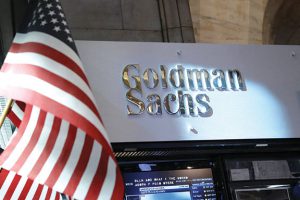Bloomberg
Executives at banking giants including Goldman Sachs Group Inc. and Bank of America Corp. are struggling to return to Hong Kong after the city banned flights from eight countries, part of an outlier Covid Zero strategy that’s threatening its appeal as financial hub.
At least a dozen Hong Kong-based managing directors at banks, also including Morgan Stanley and UBS Group AG, are stranded in countries from the US to Australia.
Those stuck include division heads in investment banking, wealth and asset management and other functions.
The flight restrictions are adding to an already fraught climate in the once easy-to-navigate financial center, which has long served as a gateway to dealmaking in mainland China and where most global banks have their Asian headquarters. Even before the latest ban, many incoming travellers had to endure one of the world’s longest quarantines — of 21 days. City officials are now tightening up further to prevent the Omicron variant from spreading as they hew to China’s Covid Zero strategy. Rival hubs such as Singapore are largely seeking to live with the virus.
Hong Kong this month banned flights from the US and UK for two weeks as it rushed to prevent Omicron from spreading in a city where the elderly particularly have been slow in getting vaccinated. The ban also applies to flights from Australia, Canada, France, India, Pakistan and the Philippines.
Banks are now seeking workarounds to bring staff back, and have re-routed employees to “medium†or “low risk†countries so they can eventually book flights back. Singapore, which is in the same time-zone as Hong Kong, has so far been the most desirable stopover, the people said. Some travellers face 7- to 10-day quarantines, while others can avoid it entirely depending on where they are coming from and that they test negative upon arrival in Singapore.
There are also difficulties in bringing back lower-rung employees, who are now saddled with having to pay expenses for an expanded stay away from Hong Kong. Most banks in the city are already compensating staff for the 21-day quarantine stay.
While the situation is for now manageable with little business impact in the near-term, it could become more dire if the flight ban is extended. There’s also concern about additional tax bills incurred from extended periods of work in countries such as Australia, which may require foreign workers to start paying taxes after a certain number of months, one of the people said.
Hong Kong officials have so far indicated little inclination to let up, maintaining that their strict approach has allowed the city’s economy to recover and arguing that what is most important is to be able to open up travel again to mainland China. The strategy has kept fatalities at a very low level, with just 213 Covid deaths over the past two years in a city of more than 7.4 million people.
Officials have shrugged off warnings from business groups that the city’s status as a global financial hub is being jeopardized. A political crackdown orchestrated by Beijing, which has included arrests of opposition figures and journalists, is also casting a pall over the city. A survey by the Asia Securities Industry and Financial Markets Association, the top lobby group for financial firms in the city, found almost half of major international banks and asset managers are contemplating moving staff or functions away.
To placate some of the anger of banking executives undergoing quarantine, the Hong Kong Monetary Authority has been delivering goodies during hotel isolation for some, while others, including JPMorgan Chase & Co. Chief Executive Officer Jamie Dimon, were exempted from quarantine.
But Hong Kong’s latest measures are now putting fresh strains on the economy. The government last week ordered the closing of bars, gyms and beauty parlors, while cutting off dine-in services at restaurants at 6 p.m. It has also closed kindergartens and primary schools.
 The Gulf Time Newspaper One of the finest business newspapers in the UAE brought to you by our professional writers and editors.
The Gulf Time Newspaper One of the finest business newspapers in the UAE brought to you by our professional writers and editors.
